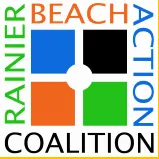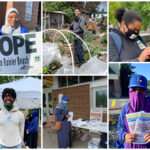By Tyree Abella
Black Women in South Seattle are at the forefront of food justice work in the area, working to ensure that their communities have access to healthy and fresh food options. One particular area of focus for these activists is the Rainier Beach neighborhood, which is considered a food desert, meaning there is limited access to affordable and healthy food options.
Rainier Beach is a predominantly Black and low-income neighborhood in South Seattle, where many residents struggle to access fresh produce and other healthy food options. According to a report by the Rainier Beach Action Coalition, the area has only one grocery store, which is not easily accessible for many residents, especially those who do not have reliable transportation. This lack of access to healthy food options can lead to diet-related health problems, such as obesity, diabetes, and heart disease, which disproportionately affect low-income communities and communities of color.
Despite these challenges, some members of the Rainier Beach community have taken it upon themselves to grow their own food and share their crops with their neighbors. For example, the Rainier Beach Urban Farm and Wetlands is a community-led project that provides fresh produce to residents and educates them about sustainable farming practices. The farm is managed by Black women, who work tirelessly to create a space that fosters food sovereignty and community resilience.
Black Women in South Seattle also work to advocate for policy changes that would address food insecurity in the area. They are pushing for greater investment in community-led food projects, such as the Rainier Beach Urban Farm and Wetlands, as well as policies that would incentivize the development of grocery stores and healthy food options in food desert areas. These activists are also calling for greater investment in public transportation, which would make it easier for residents to access grocery stores and farmers’ markets outside of the neighborhood.
In addition to their work on food justice, Black Women in South Seattle are also fighting for racial and economic justice in other areas, such as education and housing. They understand that access to healthy food is just one piece of the puzzle, and that to create truly equitable communities, they must also address the root causes of inequality and systemic oppression.
In conclusion, Black Women in South Seattle are doing critical work to address food insecurity in their communities, particularly in the food desert of Rainier Beach. Through their community-led projects, advocacy, and policy work, they are working to create a more just and equitable food system that ensures everyone has access to healthy and fresh food options.





